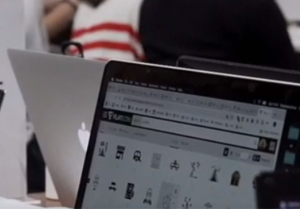 Join Historic Environment Scotland (HES) for Scotland’s first ever heritage and history hackathon – where entrepreneurs, designers and technologists will spend 75 hours exploring Scotland’s heritage through data and technology.
Join Historic Environment Scotland (HES) for Scotland’s first ever heritage and history hackathon – where entrepreneurs, designers and technologists will spend 75 hours exploring Scotland’s heritage through data and technology.
image: HES
HES writes:
From 30 May to 2 June, we’re partnering up with Product Forge and the Scottish Graduate School for Arts and Humanities (SGSAH) to deliver Scotland’s first ever heritage and history hackathon. Interest in Scotland’s history and heritage continues to grow, and our country’s reputation as a hotbed of digital innovation is also going from strength to strength. Our story goes a long way back, and advances in technology mean we can continue to take it further forward into an exciting future. We’re looking to combine the vast expertise from Scotland’s heritage sector with the burgeoning talents at the cutting-edge of our tech industry. However, we need your help too!
A hackathon brings together students, entrepreneurs, and members of the tech community – such as developers, designers, and data scientists – to develop innovative digital products that solve problems for particular sectors. In the past, Edinburgh-based Product Forge have run hackathon events for the likes of Scotland’s tourism, transport and health sectors. This time, it’s all about finding solutions for the problems we face in the heritage sector. At this event – taking place at Codebase in Stirling – participants form teams, before working together over the course of four days to propose and develop new digital solutions. There’s a competitive element too – but the main focus is on creative collaboration, sharing experiences, and having a lot of fun!
It all starts on the Thursday evening. You’ll meet up, get to know each other, and fuel ideas with a bite to eat. It’s then down to business, and team formations begin! Regardless of your background, you’ll have something to contribute. This is your opportunity to find collaborators with skills that complement your own! The idea here is to find yourself a well-rounded team. The next step is all about choosing a problem to solve. Some participants will arrive with a problem they’re looking to have solved, others will need to do a bit of digging at the start to find one! Teams then validate their thinking, and test their assumptions. This is the research stage, and can involve anything from cold-calling, through to examining data-sets. Organisations within the sector – like us! – will be contributing a variety of data-sets for teams to get stuck into.
https://blog.historicenvironment.scot/2019/05/heritage-history-hackathon/
